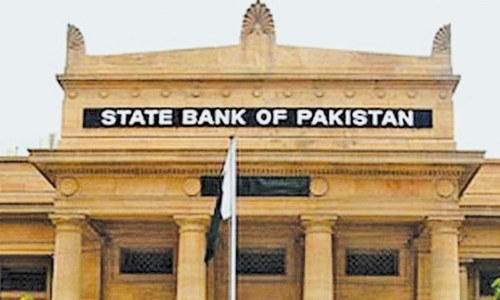ISLAMABAD: The government is anticipating the fiscal deficit for the current fiscal year to reach 6.3 per cent of gross domestic product (GDP) and miss the 5.1pc target set in September last year by a wide margin.
According to finance ministry’s revised estimates for fiscal operations, the fiscal deficit has been worked out at Rs2.39 trillion in absolute terms against the fixed target of Rs1.98tr set as part of the supplementary budget 2018-19. The deficit was originally fixed at 4.9pc of GDP (Rs1.89tr) by the PML-N government in its final budget announcement.
This would mean the deficit estimates would be close to last year when it stood at 6.5pc of GDP or Rs2.243tr. Informed sources said the slippages on the fiscal front were emerging from both sides — revenue collection and expenditure overrun.
Mainly because of these slippages, the sources said, the government was anticipating the bailout package with the International Monetary Fund (IMF) to go into effect at the start of next fiscal year. The sources said the government had already made major adjustments in fiscal and monetary policies including increases in the prices of oil, gas and electricity, policy rate and rupee depreciation during the course of last six months and wanted some breathing space before a second major round of adjustment — considered painful for the people — was introduced.
Current expenditures to see massive overrun of Rs391 billion; defence to see largest overrun of Rs575bn
The sources added that the government had earlier set a gross revenue target of Rs5.613tr but the collections are not expected to go beyond Rs5.571tr — leaving a shortfall of about Rs42 billion. Estimates for net revenue receipts, on the other hand, have now been scaled down to Rs2.991tr instead of Rs3.044tr, down by Rs53bn.
The government is now estimating a shortfall of Rs17bn in FBR’s tax collection to Rs4.417tr even though it had already accumulated a gap of about Rs190bn. This estimate is based on optimism that substantial revenues would accrue out of settlement of disputes on gas infrastructure development cess and telephone taxes during remaining four months of the current fiscal year.
On the other hand, the government is now anticipating the total expenditure to touch Rs5.38tr instead of Rs5.31tr budgeted in September last year. Of this, the current expenditure is likely to go beyond Rs4.804tr instead of Rs4.413tr, a massive overrun of Rs391bn.
This is based on estimates that the interest payments would likely amount to Rs1.95tr instead of Rs1.84tr estimated in September last year mainly due to currency depreciation. Likewise, the total defence expenditure is also estimated to go beyond Rs1.675tr figure against Rs1.1tr budgeted in September last year.
Since the development programme had already been slashed down to a bare minimum, the government does not have ample room to fill the widening gap. The Public Sector Development Programme (PSDP) is, therefore, estimated to remain unchanged at the revised target of Rs575bn.
In the supplementary budget announced in September last year, the government had protected the China-Pakistan Economic Corridor (CPEC) and other strategic development projects, but reduced the overall PSDP-related expenditure to Rs575bn from Rs800bn announced by the PML-N government.
In the first seven months of the current fiscal year, the government has released an amount of Rs310bn for PSDP projects as of Feb 8 compared to Rs456bn of the same period last year, down by about 47pc.
Published in Dawn, February 15th, 2019















































